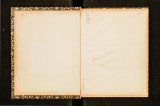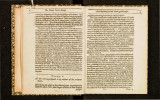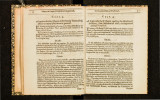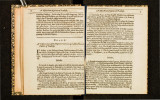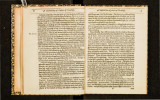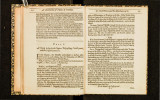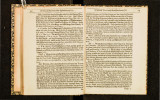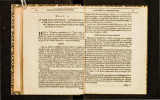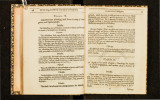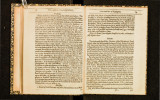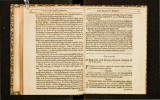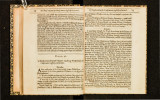| Title |
Bloudy Tenent Washed and Made White in the Bloud of the Lambe |
| Call Number |
BV741.W58 C6; Record ID 99180490102001 |
| Date |
1647 |
| Description |
Cotton, John (1584-1625). The bloudy tenent. London: Printed by M. Symmons for H. Allen, 1647 BV741 W58 C6 |
| Creator |
John Cotton (1584-1652) |
| Publisher |
Digitized by J. Willard Marriott Library, University of Utah |
| Subject |
Liberty of conscience; Roger Williams (1604?-1683) |
| Type |
Text |
| Format |
application/pdf |
| Language |
eng |
| Rights |
 |
| Holding Institution |
Rare Books Division, Special Collections, J. Willard Marriott Library, University of Utah |
| Scanning Technician |
Cedar Gonzalez |
| Digitization Specifications |
Original scanned with Hasselblad H2D 39 megapixel digital camera and saved as 600 ppi tiffs. Display images created in Adobe Photoshop Lightroom 4 and generated in Adobe Acrobat ProX as multiple page pdf. |
| ARK |
ark:/87278/s61k0w1w |
| Setname |
uum_rbc |
| ID |
294354 |
| Reference URL |
https://collections.lib.utah.edu/ark:/87278/s61k0w1w |




